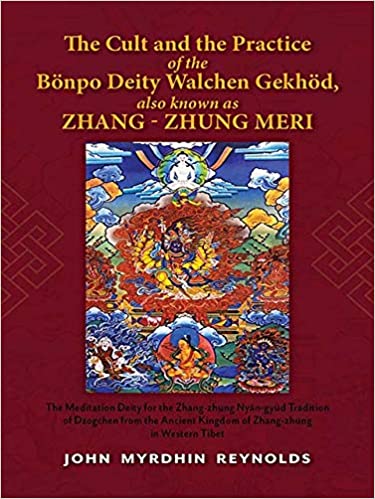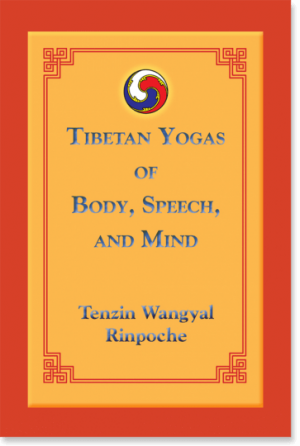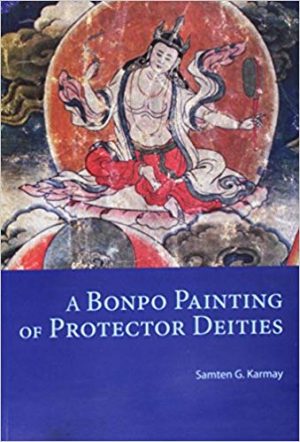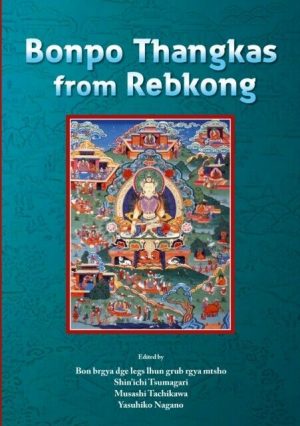Description
The Cult and the Practice of the Bönpo Beity Walchen Gekhöd, also know as Zhang-Zhung Menri, the Meditation Deity for the Zhang-zhung Nyan-gyud Tradition of Dzogchen from the Ancient Kingdom of Zhang-zhung in Western Tibet, containing translations of the Sadhana Practice texts for the Deity Zhang-zhung Meri from the Me-ri sGrub-skor, together with the Origin Myth of Walchen Gekhöd and translations of commentaries on this practice by John Myrdhin Reynolds.
Before the coming of Buddhism from India to Tibet in the 7thand 8thcenturies and the simultaneous arising the empire in Central Tibet, there flourished in northern and western Tibet the ancient kingdom of Zhang-zhung. This kingdom, which centered around the sacret mountain of Kailas, was closely connected with other ancient Central Asian cultures and its own religious culture was known as Bon. In later centuries after the fall of the Tibetan empire and the fragmentation of the country, this ancient religious tradition was preserved among the Tibetan people by the Bönpo Lamas and this continued to exist and be practiced among the Tibetan people until the present day, parallel to the Buddhism of Indian origin. Central to this Bönpo tradition was the theory and practice known as Dzogchen, “the Great Perfection.” Of Central Asian origin, it also flourished in the Nyingmapa school of Tibetan Buddhism since the early days.
Connected with the Bönpo practice of Dzogchen, known as the Zhang-zhung Nyan-gyud, “The Oral Tradition from Zhang-zhung,” there is the practice and ritual of the meditation deity Walchen Gekhöd, “the slayer of demons,” also known in his specialized warrior aspect in golden armour as Zhang-zhung Meri. This tempestuous mountain god of Mt. Kailas, having descended thereupon in the form of a gigantic flaming yak, was the paron deity of the Zhang-zhung kingdom and its ruling dynasty. However, according to the Bönpo tradition, this illustrious figure was not just a worldly deity, but an manifestation of Buddha enlightenment in wrathful form emanated by Atimuwer in order to combat the scourge of demons and evil spirits inflicted upon humanity and the planet earth. Under the guidance of Lopön Tenzing Namdak, the foremost living expert on Bönpo Dzogchen and its traditions, this volume contains a study and translations of a number of texts associated with this ancient deity of Zhang-zhung from Tibetan sources.



